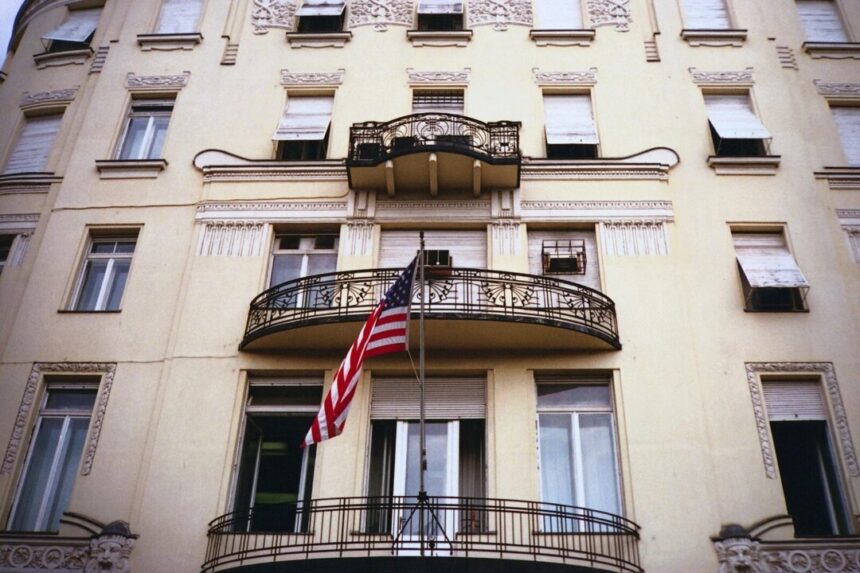Remembering Cardinal József Mindszenty.
Commentary
In many homes worldwide, the day after Christmas is nearly as festive as the day before. Dec. 26 is a holiday in the UK and many Commonwealth nations. People everywhere look forward with hope to the New Year just days away.
That may not have been true on Dec. 26, 1948, for a Catholic prelate in Hungary named Cardinal József Mindszenty (1892–1975). Arrested that day by communist authorities, he was sentenced to life in prison on concocted charges of “treason and conspiracy.” Beatings and torture followed.
This was not Mindszenty’s first arrest. He was just 27 when, in 1919, he spoke out against the “socialist policies” of the Hungarian government and found himself behind bars as a result. A few months later, for expressing similar sentiments, he was re-arrested by the next government, a short-lived communist one. Then in 1944, Mindszenty was arrested by the Nazi puppet regime when he opposed the government’s plan to quarter its troops on Church property. When he was grabbed and jailed in the waning days of 1948, “here we go again” might have sprung to his mind.
When the bad guys hate you, you’re probably doing something right. Every time the authorities busted Mindszenty, it was for the same “crime,” namely, speaking truth to power. His story recalls an inspiring statement, in a slightly different context, from Winston Churchill. During a visit to Harrow School near London in 1941, the Prime Minister declared:
Never give in, never give in, never, never, never, never—in nothing, great or small, large or petty—never give in except to convictions of honor and good sense. Never yield to force. Never yield to the apparently overwhelming might of the enemy.

József Mindszenty in 1974. Rob Mieremet – CC BY-SA 3.0 NL
In 1947, as the post-war Soviet occupation tightened communism’s grip on Hungary, the Cardinal repeatedly and publicly condemned the oppressors. He issued statements that angered the authorities, such as one in April that warned:
The government has assumed complete control of the publication of textbooks to be used in our schools. Thus the ruling political party in this land will now have the power to indoctrinate our youth.
Ahead of sham elections that same year, Mindszenty chastised his fellow Hungarians who naively believed that the communists had mellowed and embraced democracy:
We trusted those who had taken over the reins of government. We overlooked their abuses of authority, believing such abuses were the inevitable accompaniment of change and hoping they would cease with the passage of time. Now the time has come for elections, we can no longer keep silent. We must publicly declare that no Christian voter can support a party that rules by violence and oppression and tramples underfoot all natural laws and human rights.
By December of the following year, the regime viewed the Cardinal as an implacable foe who had to be silenced and discredited.
I, for one, am thankful that humanity often produces such remarkable people. Mindszenty’s resolve helped stiffen the spines of others when circumstances called for courage and defiance. That spirit ultimately prevailed and brought down one European communist despotism after another in 1989–91.
Two months after his fourth arrest—on the day after Christmas in 1948—Mindszenty was put on trial by Hungary’s Stalinist dictatorship. His conviction and life sentence in early 1949 produced an international uproar. Even the United Nations issued a resolution condemning it. The regime claimed he confessed to his “crimes,” but the Hungarian people knew better. The Cardinal had warned before his incarceration that any confession should be regarded as fabricated or induced under duress and, therefore, meaningless.
When Hungarian patriots briefly liberated Budapest in a 1956 uprising, Mindszenty was set free. He immediately endorsed the movement and spoke to the nation by radio as armed forces from Moscow invaded Hungary to put the communists back in power. “Let everyone in the country know,” he said, “that this fight was not a revolution but a fight for freedom.”
The Soviet invasion sadly succeeded, prompting Mindszenty to seek asylum in the US embassy in the Hungarian capital. He remained inside for the next 15 years until a diplomatic arrangement allowed him to leave the country safely. He lived in exile in Austria until he died in 1975.
Additional Resources:
“Memoirs” by József Mindszenty
Views expressed in this article are opinions of the author and do not necessarily reflect the views of The Epoch Times.
Please rewrite this sentence.
Source link







